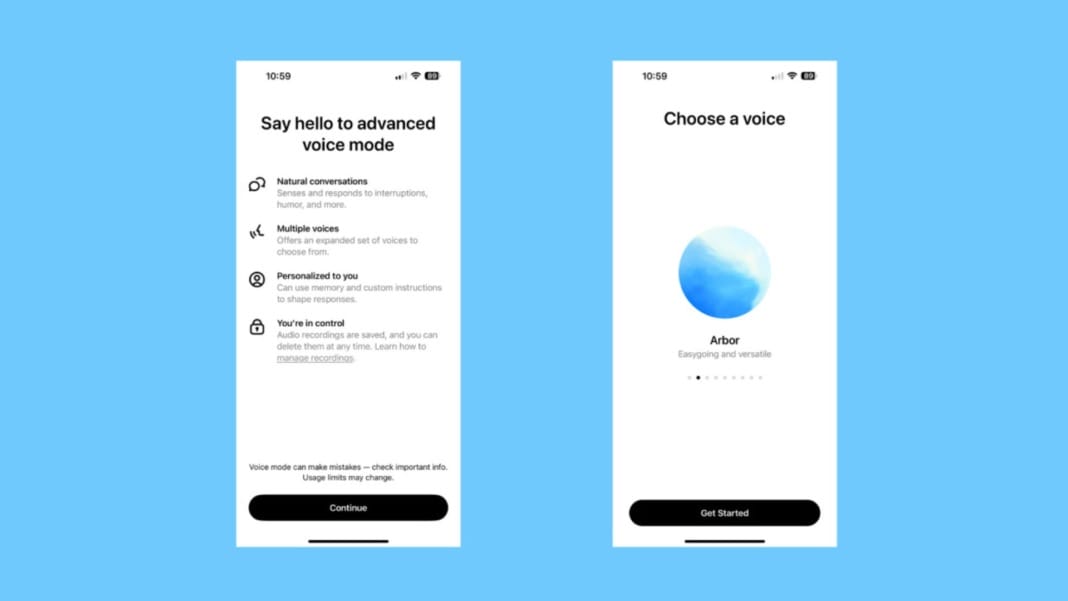ChatGPT’s Advanced Voice Mode (AVM) has officially arrived on desktops, making it easier than ever to have real-time conversations with AI. OpenAI announced the update on Wednesday, allowing PC and Mac users to speak directly with ChatGPT. This feature enables a more natural, flowing dialogue where you can pause, stop, and even express emotions without typing a single word.
Big day for desktops.
— OpenAI (@OpenAI) October 30, 2024
Advanced Voice is now available in the macOS and Windows desktop apps.https://t.co/mv4ACwIhzA pic.twitter.com/HbwXbN9NkD
“Big day for desktops,” OpenAI posted on X (formerly known as Twitter), marking the official release of this sought-after feature. AVM, which builds on OpenAI’s GPT-4 model, allows users to interact as if chatting with another person. The advanced speech technology behind AVM senses emotions, responds in real-time, and even lets you stutter or interrupt the AI, keeping conversations smooth and uninterrupted.
An interactive approach to AI
AVM initially launched in July as part of a beta test and has expanded to premium subscribers worldwide after months of anticipation. Users have found it handy for various tasks, from quick conversations to more in-depth sessions, noting that AVM feels surprisingly human. OpenAI pointed out that this addition offers “more natural, real-time conversations,” the AI can pick up conversational cues, creating a seamless interaction.
OpenAI also promised that free users would get a limited preview of AVM, although premium subscribers would currently enjoy the full range of features. Users in the European Union are included in the rollout, and OpenAI plans to keep everyone updated on future expansions and improvements to AVM.
The feature has sparked excitement on social media, with users sharing their experiences of AVM’s voice versatility, from regional accents to speech pauses, bringing a unique dynamic to AI interactions. “Social media was buzzing with demonstrations,” OpenAI remarked, following AVM’s recent debut for Plus subscribers. Its popularity has already led other tech giants like Meta and Google to explore similar voice interaction options.
Chat history search brings added convenience
Only a day after AVM’s launch, OpenAI introduced another helpful feature: chat history search. The new search functionality lets users quickly find past conversations within the ChatGPT web app, making retrieving information or resuming previous chats easier. In a post on X, OpenAI announced, “We’re rolling out the ability to search through your chat history on ChatGPT web. Now you can quickly & easily bring up a chat to reference or pick up where you left off.”
We’re starting to roll out the ability to search through your chat history on ChatGPT web.
— OpenAI (@OpenAI) October 29, 2024
Now you can quickly & easily bring up a chat to reference, or pick up a chat where you left off. pic.twitter.com/YVAOUpFvzJ
This search function aims to save time and provide more flexibility for users who rely on ChatGPT for ongoing projects or regular tasks. By allowing quick access to previous conversations, the feature enhances user experience, especially for those who use ChatGPT in professional or educational settings where conversation continuity is essential.
As ChatGPT’s capabilities expand, OpenAI continues to refine its offerings to create a more interactive and efficient tool for users worldwide. The Advanced Voice Mode and chat history search are just the latest steps toward making AI a seamless part of everyday life, accessible to everyone, everywhere.





